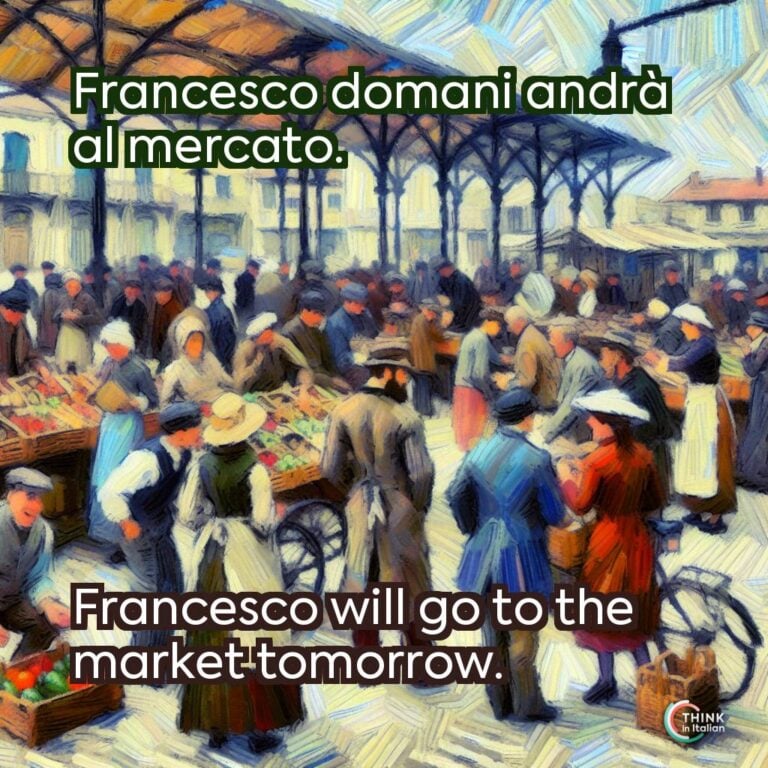What is the irregular future tense?
While in English the future tense is constructed by putting “will” or “shall” in front of the verb, in Italian the future tense is made by conjugating the verb (= changing the verb endings).
Although most Italian verbs follow a regular conjugation, some verbs have an irregular future tense and therefore do not follow predictable conjugation patterns and must be memorized.
Note: In Italian, we can also use the present tense to refer to events happening in the near future, if the time of the event is specified.
For example: Domani vado a scuola (= Tomorrow I will go to school). However, using the future tense to talk about future events is always acceptable, so if you use the future tense you can’t go wrong!
Let’s talk about the future tense of irregular verbs. There’s also a post about the future tense of regular verbs.
Irregular future tense: Essere and Avere
You might already know the Italian expression “che sarà, sarà” (=what will be, will be). In this expression sarà is simply the irregular conjugation of the verb essere (=to be) in the future tense.
Let’s take a look at the future tense conjugation for two of the most used verbs in Italian: essere (=to be) and avere (=to have):
| Verb: | Essere (= to be) | Avere (=to have) |
| io | Sarò | Avrò |
| tu | Sarai | Avrai |
| lui/lei | Sarà | Avrà |
| noi | Saremo | Avremo |
| voi | Sarete | Avrete |
| loro | Saranno | Avranno |
Learn more about Italian verb tenses.
Irregular future tense: frequently used verbs
The following table shows the future tense of some frequently used verbs. Learning them will be very useful.
| Verb: | Andare
(= to go) |
Venire
(= to come) |
Fare
(= to do) |
Dire
(=to say) |
Dovere
(= must) |
Potere
(= can) |
| io | andrò | verrò | faro | dirò | dovrò | potrò |
| Tu | andrai | verrai | farai | dirai | dovrai | potrai |
| lui/lei | andrà | verrà | farà | dirà | dovrà | potrà |
| noi | andremo | verremo | faremo | diremo | dovremo | potremo |
| Voi | andrete | verrete | farete | direte | dovrete | potrete |
| loro | andranno | verranno | faranno | diranno | dovranno | potranno |
Irregular future tense: Irregular spelling
There are some verbs that mostly follow a regular conjugation pattern, but their spelling is slightly irregular. Let’s take a look at some examples.
- Verbs ending in –ciare and –giare (ex. cominciare, mangiare) drop the “i” before the verb ending:
Da domani non mangerò più carne, voglio diventare vegetarian.
Starting tomorrow, I will not eat meat anymore. I want to become a vegetarian.
Luca comincerà a lavorare lunedì prossimo.
Luca will start working next Monday.
- Verbs ending in –care and –gare (ex. cercare, pagare) add an extra “h” before the verb ending:
Paolo e Francesca cercheranno un appartamento a Roma?
Paolo and Francesca will look for an apartment in Rome?
Se uso la carta di credito, pagherò il mese prossimo.
If I use my credit card, I’ll pay the next month.




